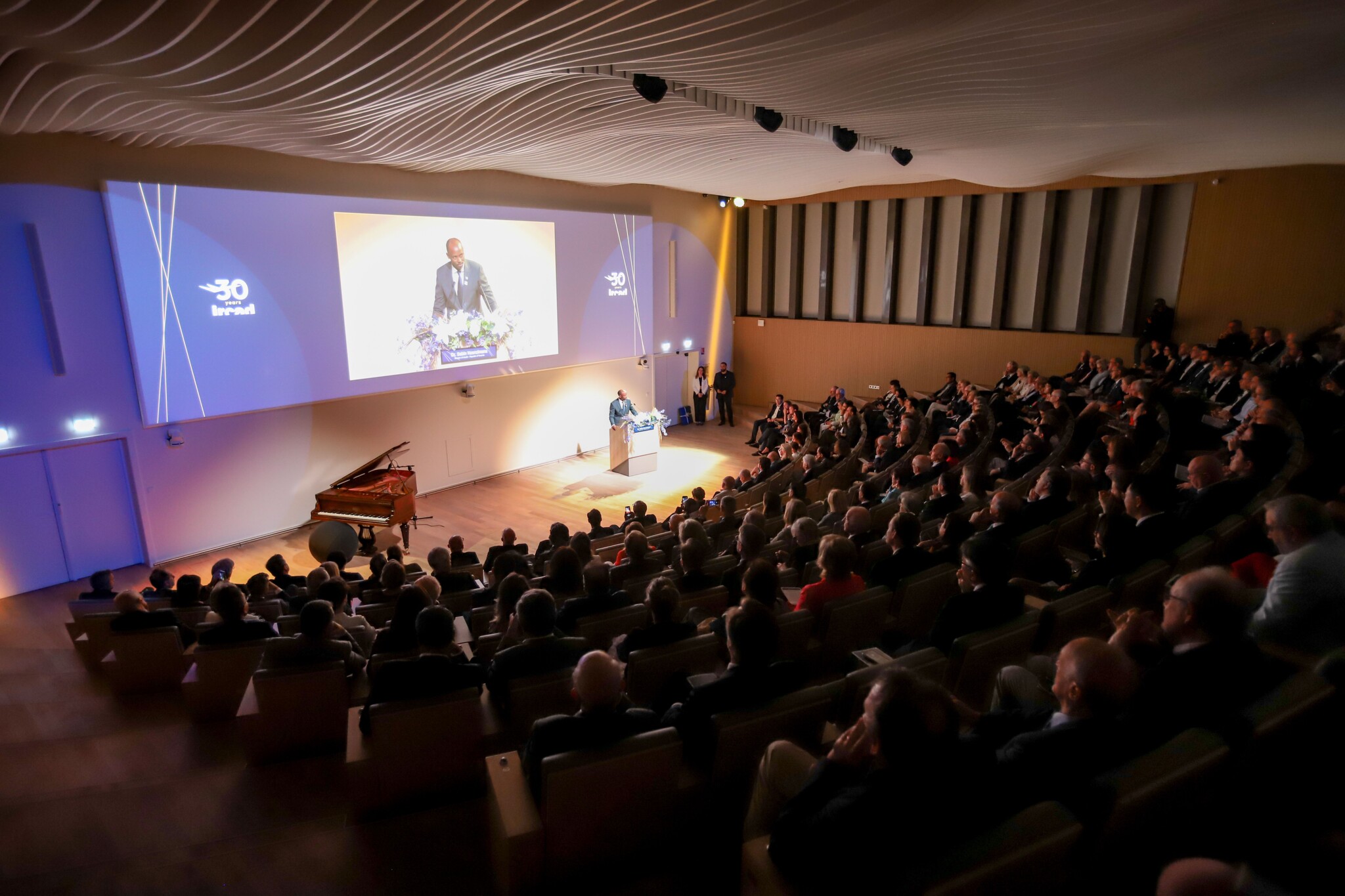
Thirty years ago, we founded IRCAD, convinced that robotic surgery, telesurgery, artificial intelligence, and new technologies in general would revolutionize surgery and bring significant benefits to patients. At that time, robotics was considered a gimmick, a curiosity to attract journalists, and we were sometimes seen as eccentrics. Thirty years later, history has proven us right: the enthusiasm for robotic surgery is driven by the desire to offer less and less invasive surgeries. The robot enhances the surgeon’s hand through the articulation of its small instruments and enhances their vision through high-definition 3D imaging. Furthermore, it reduces the surgeon’s fatigue, contributing to better performance. Finally, the analysis of the operator’s movements and intervention data by artificial intelligence is a tremendous tool for advancing practices. However, we are only at the beginning of the robotic revolution.
In 2001, with Operation Lindbergh, the first transatlantic surgical procedure, we demonstrated the feasibility of the concept of long-distance telesurgery. Today, the concept is experiencing renewed international interest: Japanese and Chinese teams are evaluating the safety of remote interventions, which offer a solution to medical deserts. In the cardiovascular field, the development of robots that enable interventional radiology procedures, such as thrombectomies, has also significantly progressed, offering opportunities to patients far from major care centers. In cases of ischemic stroke, performing a thrombectomy, in addition to thrombolysis (clot dissolution), doubles the patient’s chances of avoiding lasting effects from the stroke. However, this must be done within hours of the stroke, which is not possible in the most remote regions. Currently, about ten companies, including the French Robocath, are developing such robotic solutions to address healthcare access inequalities.
These hopeful advancements for patients largely rely on artificial intelligence (AI), at the heart of IRCAD’s research. These efforts have led to numerous breakthroughs, including the creation of a tool for reconstructing a patient’s digital twin, allowing for the simulation of different surgical strategies to choose the best one. AI also helps recognize anatomical structures and identify the essential steps to follow during a surgical intervention, which improves patient safety. In the future, AI will facilitate the delegation of tasks worldwide, making medical imaging techniques or percutaneous surgery accessible to non-experts – this is the aim of the Disrumpere project conducted by the IRCAD teams in France and Africa.
All these innovations not only lead to improved care quality but also reduce costs through the early detection of diseases, enabling less invasive procedures, faster patient rehabilitation, and solutions to address medical deserts. These savings are complemented by macro-economic benefits: as experts from the World Health Organization highlight, improving population health positively impacts economic development.
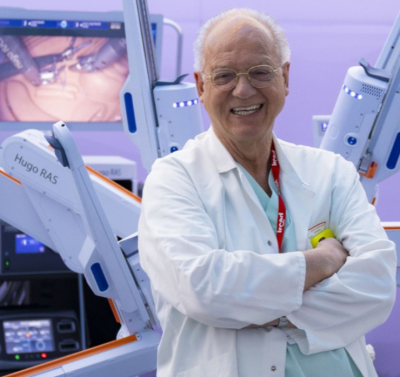
Professor Jacques Marescaux
President and founder of IRCAD
Founded in 1994 by Professor Jacques Marescaux, IRCAD quickly established itself as a leading institute dedicated to research and training in minimally invasive surgery.
The Strasbourg institute has gained international recognition:
The surgical training provided at IRCAD for surgeons wishing to improve their skills has expanded over time. It now encompasses nearly 20 specialties and covers numerous pathologies – thus, the institute’s work extends far beyond its acronym “Institute for Research against Digestive Cancers.”
Additionally, the free online university WebSurg, created in 2000, allows anyone, at any time, from anywhere in the world, to receive training by viewing surgical videos illuminated by the best experts in each specialty. Today, the WebSurg website offers 5,800 procedures in 16 specialties to the platform’s 500,000 members.
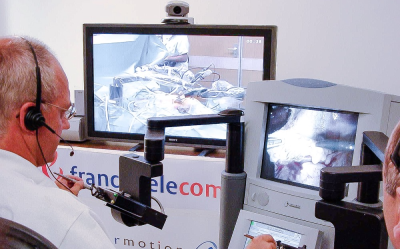
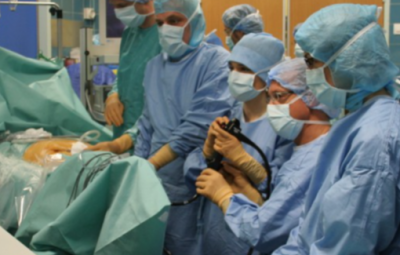
Professor Marescaux during Operation Lindbergh; IRCAD teams mobilized for Operation Anubis.
Among the institute’s major research themes:
On Saturday, June 1, 2024, IRCAD celebrated its thirtieth anniversary in the presence of the Presidents, Directors, and spokespersons from its eight mirror institutes [1], industrial partners (Medtronic, Karl Storz, Intuitive Surgical, CMR Surgical, Medicaroid, Pentax Medical, Siemens Healthineers), representatives from the University of Strasbourg (Michel Deneken, President) and the University Hospitals of Strasbourg (Samir Henni, General Director), as well as representatives of local authorities (Pia Imbs, President of the Eurometropolis of Strasbourg, Frédéric Bierry, President of the European Collectivity of Alsace, Jeanne Barseghian, Mayor of Strasbourg, who sent a video message along with Franck Leroy, President of the Grand Est Region). All emphasized IRCAD’s visionary spirit, the passion driving its teams to advance medical research and technology development, and the family spirit that unites those working within IRCAD, driven by the common ideal of improving healthcare worldwide.
A special guest at the ceremony, Dr. Sabin Nsanzimana, Rwandan Minister of Health, was accompanied by His Excellency François Nkulikiyimfura, the Rwandan Ambassador to France, representing the President of the Republic of Rwanda, Paul Kagame. The Rwandan Minister invited the attendees to celebrate the journey from the impossible to the possible, reflecting on the 30 years that have allowed the Republic of Rwanda to rise from its ashes with determination after the 1994 genocide. He expressed his country’s gratitude to Professor Marescaux for choosing Africa and Rwanda in particular to establish an IRCAD. He also reaffirmed the commitment of President Paul Kagame and the Rwandan government to support IRCAD, whose goal is to ensure everyone has access to the best medical care, particularly minimally invasive and robotic surgery.
[1] IRCAD Taiwan, IRCAD Latin America (two institutes), IRCAD Lebanon, IRCAD Africa, IRCAD India, IRCAD China, IRCAD North America.
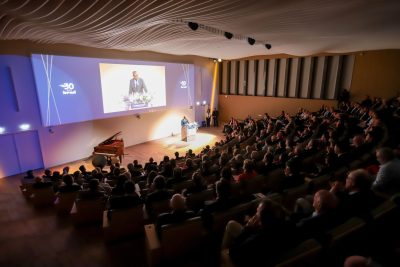
Anniversary Ceremony: Dr. Sabin Nsanzimana, Minister of Health of the Republic of Rwanda.
We hope you enjoyed this 13th issue of the IRCAD newsletter.
For any information, registration, or unsubscription requests: FINN Partners – sante@finnpartners.com
To learn more about IRCAD: https://www.ircad.fr
And to discover all the faces of IRCAD, the podcast “Beyond IRCAD – Surgical Journeys” offers a fascinating and inspiring journey each month with prestigious surgeons who have built remarkable careers in the field of medicine. Each episode revisits the unique personal and professional paths of these exceptional individuals who have been part of the IRCAD adventure. You can listen to the podcast on the platform of your choice:
Follow IRCAD news on :
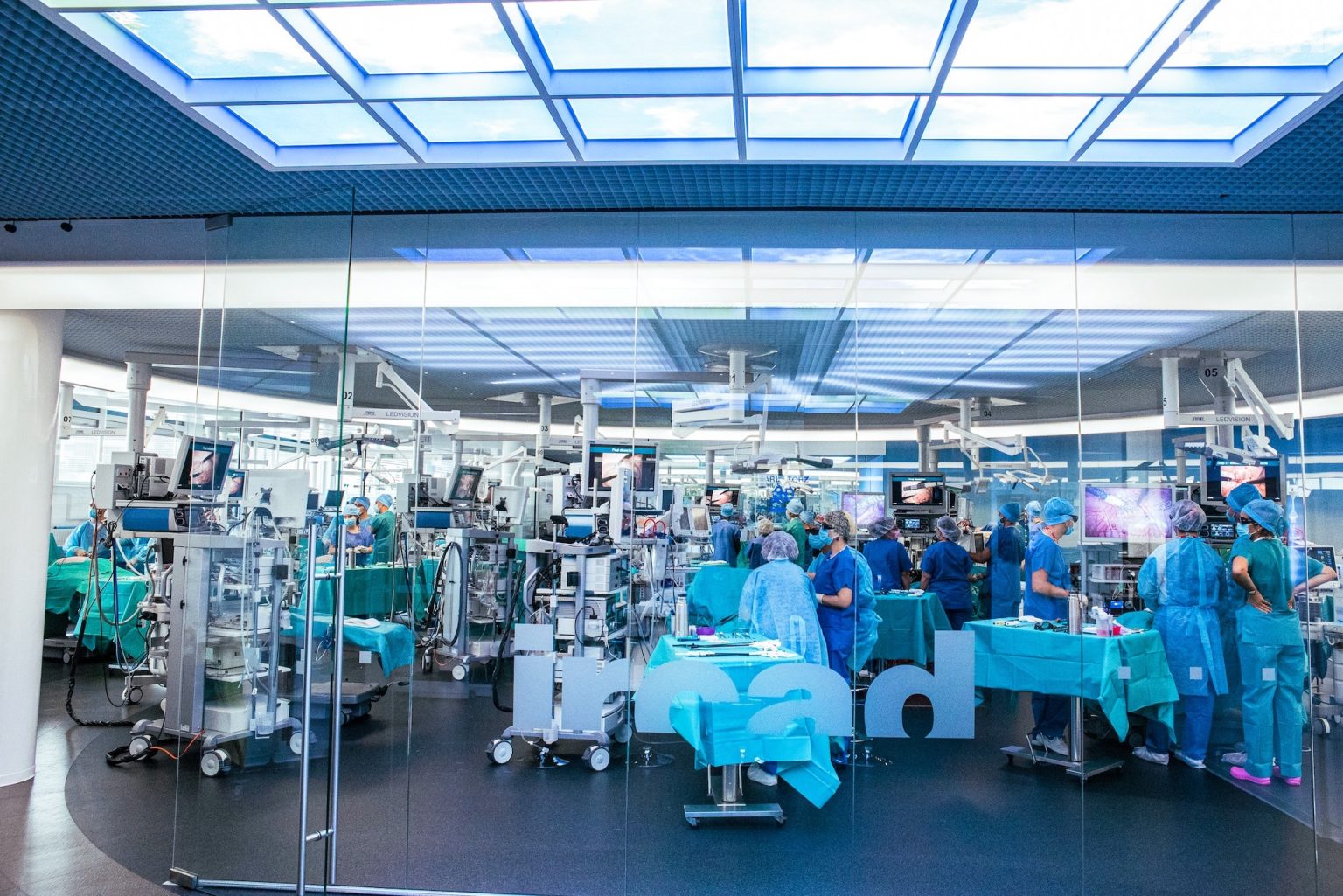
Please note that the IRCAD administrative board and staff are closely monitoring the evolving COVID-19 situation, in full compliance with all applicable laws and regulations in France. The health, safety, and well-being of our participants, experts and staff are our top priority!
Despite the current context, the IRCAD stands firmly by your side to help you acquire knowledge and skills. Come and join us !
We would like to draw your attention that the « Vaccine Pass » is now mandatory in France since end of January 2022 and replaces the former « Health Pass » to access places that are open to the public, such as cinemas, museums, cafés and restaurants, hotels as well as the IRCAD Institute which welcomes participants in the framework of its courses and seminars. Thus, a PCR test without vaccination is no longer sufficient to take part in our courses.
The vaccine pass includes a proof of the following (one of the 3 items is sufficient):
Further information about the new vaccine pass can be found at :
We very much hope to be able to count on your kind understanding of those rules which have been set by the French Government and which our Institute is required to apply